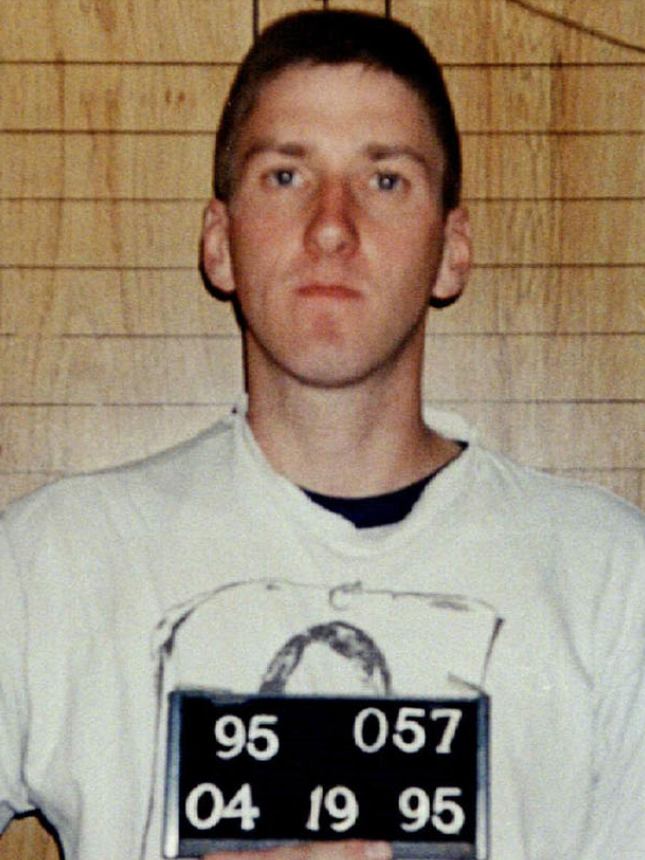On June 11, 2001, the U.S. Penitentiary in Terre Haute, Indiana, executed Timothy McVeigh, the mastermind behind the Oklahoma City bombing. McVeigh was convicted of conspiracy to commit mass destruction, the use of weapons of mass destruction, and first-degree murder of eight federal employees. His actions resulted in the deaths of 168 people and injuries to hundreds more, making it the deadliest act of domestic terrorism in U.S. history.
Timothy McVeigh was born in 1968 to Irish American parents in New York. He grew up in a broken home, primarily raised by his father. McVeigh claimed he was a victim of severe bullying during his childhood, and he often daydreamed about taking revenge on the bullies who caused him significant emotional pain. He enrolled in college but dropped out after just one year. At the age of 20, he joined the U.S. Army, where he developed a strong interest in firearms and spent much of his free time researching various types of weaponry. McVeigh was honorably discharged in 1991. After leaving the Army, he became increasingly angry with the U.S. government, his new bully, and the concept of paying taxes. His radical anti-government sentiments were fueled by his anger and distrust of all government authorities.
On April 19, 1995, Timothy McVeigh bombed the Alfred P. Murrah Federal Building in Oklahoma City as an act of revenge against the United States government. He believed that his actions would spark a revolution against what he perceived as governmental tyranny. Instead, his attack resulted in the deaths of 168 people, including 19 children, and injured over 850 individuals. The bombing also caused damage to more than 300 buildings and incurred costs exceeding $600 million for the city.
Timothy McVeigh was sentenced to death by lethal injection. He requested that his execution be televised nationally, but this request was denied. While his death brought closure to many families of the victims, it also highlighted the complex emotions that people have regarding the death penalty.

